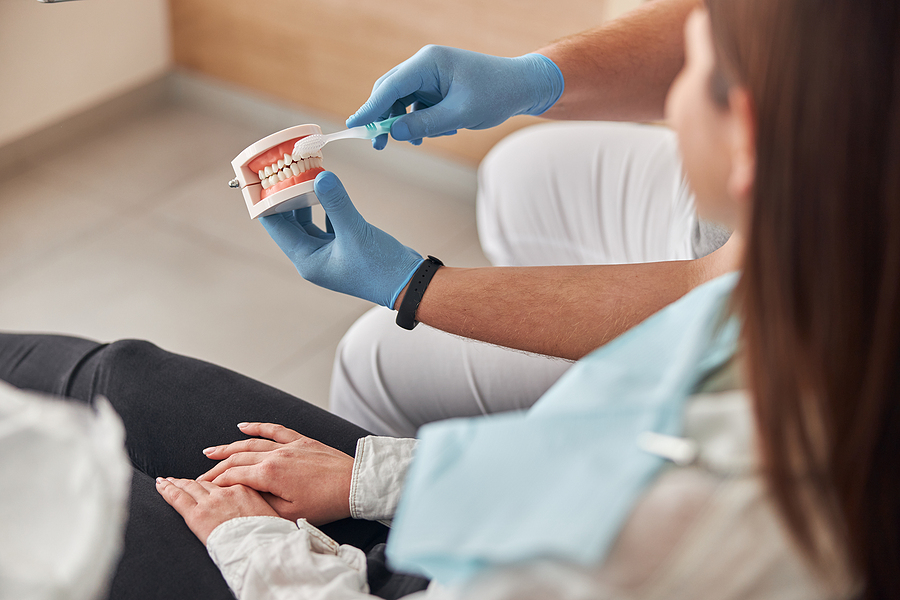Keeping teeth squeaky clean can spare people from contracting pneumonia in hospital, a new analysis of more than 2,700 patients has found, with fewer cases of the common lung infection linked to daily toothbrushing.
Selina Ehrenzeller and Michael Klompas, two epidemiologists specializing in infectious disease at Brigham and Women’s Hospital in Boston, pooled data from 15 clinical trials where people either brushed their teeth multiple times daily, or washed their mouths out with antiseptic mouthwash, swabs, or saline.
While the logic of good oral hygiene seems pretty clear – cleaning your pearly whites could stop bacteria or other pathogens sneaking down the throat to cause lung infections such as pneumonia – the evidence has so far been a bit conflicting, especially for patients in hospital who who cannot brush their teeth unassisted.
Ehrenzeller and Klompas sought to clear that up, analyzing data on 2,786 patients involved in one of 15 clinical trials and finding that hospital-acquired pneumonia rates were lower among patients randomized to daily toothbrushing, twice or more a day.
Hospital-acquired pneumonia is a common but deadly lung infection that can make already-ill patients sicker. From studies conducted worldwide, its incidence ranges from 1 in 50 to 1 in 200 hospital admissions.
Critically-ill patients admitted to hospital may be particularly vulnerable to infection, and then find themselves in an environment that is teeming with drug-resistant superbugs. All told, between 5 and 10 percent of hospital patients acquire an infection of some kind during their stay.
Hospitals go to great lengths to stop pathogens from spreading. But incorporating toothbrushing into the care of ventilated patients and encouraging other patients to do the same might be a low-cost way of improving oral health and reducing pneumonia cases, the research suggests.
While oral care is often provided for patients in the form of antiseptics, microflora can persist, perhaps thanks to their ability to hide out in biofilms. Physical disruption of these structures remains the best way to keep those microbe counts down.
“It’s rare in the world of hospital preventative medicine to find something like this that is both effective and cheap,” says Klompas. “Instead of a new device or drug, our study indicates that something as simple as brushing teeth can make a big difference.”
Toothbrushing significantly reduced pneumonia rates among patients on breathing support, who incidentally made up most of the numbers in the studies analyzed. The reduction was equivalent to one case of pneumonia prevented for every 12 mechanically ventilated patients who had their teeth brushed.
For patients in intensive care, daily toothbrushing was also linked to shorter stays and fewer days of mechanical ventilation. However, brushing three or more times a day provided little additional benefit over brushing twice daily.
“The findings from our study emphasize the importance of implementing an oral health routine that includes toothbrushing for hospitalized patients,” especially those on mechanical ventilation who may need help from care staff, says Klompas.
Rupak Datta, a hospital epidemiologist at Yale School of Medicine who was not involved in the research, says the analysis presents “compelling data” that “reinforces the notion that routine toothbrushing is an essential component of standard care in ventilated patients.”
No significant effect was found, however, among hospitalized patients who weren’t receiving mechanical ventilation. This could be because only two of the 15 studies in the analysis involved non-ventilated patients, so the benefit of toothbrushing in reducing pneumonia remains uncertain in that group.
These cases of non-ventilator hospital-acquired pneumonia are just as important to prevent: They occur in 1 in 200 hospitalizations, according to a large study in 284 US hospitals published earlier this year, and of those non-ventilated patients, 1 in 5 died in the hospital.

